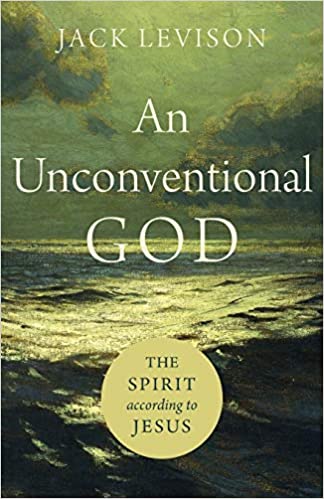BEN: On p. 15 you stress that it is a myth that the Holy Spirit does not show up until Pentecost. You are absolutely right about that, as it’s hard not to notice the Spirit at work in the Gospels, including in the life of Jesus, and of course you are right as well that these folks including Jesus were all Jews. The rub comes if one equates the spirit of Elijah which Elisha asked a double portion of with the Holy Spirit. Yes, there was a long line of Jews who were inspired and empowered by the living and active spirit of God. I doubt however that the writers of the NT see this as identical with the third person of the Trinity. Why not? Because in the Gospel of John it is Jesus himself who will send the Advocate, the Counselor to his disciples and only when he ascends to heaven having completed his work on the cross and by the resurrection. So, yes Jesus is the locus of the Spirit, and the Spirit’s activity during his ministry, but no, the Holy Spirit who is the ‘agent’ of the Son, sent by the Son, is not the same thing as the empowerment and inspiration God’s spirit gave his OT people. In addition, in Luke 1.41-42 the Greek does not say Elizabeth is filled with ‘the’ Holy Spirit (following your point about the absence of the definite article, nor is the definite article mentioned in 1.34-35), it simply says she was filled with holy spirit and spoke—a way to talk about God inspiring her. Explain more fully why you read these texts differently.
JACK: This is a huge question, Ben, and well-asked. Let me try to take it apart and put it back together.
First, I agree that neither ruach nor pneuma has the same meaning in every context. Ruach alone occurs 389 times in the Old Testament. That is why I put my money on Isaiah 63 and Haggai 2, in which the spirit is understood as an agent (the word you use of the Spirit in the NT) of the exodus. These are the two pivotal texts in which, for lack of a better word, the Spirit is understood first as a person. Not a person of the Trinity, mind you. But a person. A personality. An agent of God. Isaiah 63, I believe, lies behind the temptation of Jesus, the blasphemy saying, and various other NT texts. The Holy Spirit before Christianity spells this out. So not every Old Testament text is of equal importance; some are more significant than others.
Second, just as you’ve done, I think it is impossible to stress enough that Jews in the era of Jesus claimed to experience the Spirit. The notion of “the absence of the Spirit,” which Gordon Fee unfortunately espoused in his magisterial God’s Empowering Presence is simply not right. The “intertestamental era” was not void of the Spirit. That is just not true. Many of my scholarly articles pummel this notion, not least “Did the Spirit Withdraw from Israel? An Evaluation of the Earliest Jewish Data,” in New Testament Studies. It is high time we put aside this failed conception of the withdrawal of the Spirit. You are not espousing this, I know, but it still lingers, like bad cheese in a fridge. Christians need to say no.
Third, this means the outpouring of the Holy Spirit at Pentecost was not a first action of God. Nowhere does Luke say this. It is a continuation of God’s work in Israel. Have you wondered what the followers of Jesus say when they are filled with the Spirit? The mighty acts of God. You know well, Ben, as well as anyone, that this is a shorthand phrase to describe the litany of God’s acts in Israel. Think of that! Inspired by the Spirit, they did what any good Jew would do: praise God for God’s splendid works throughout Israel’s history, culminating in Jesus—who is also part of Israel’s history! There is a lovely symbiosis at Pentecost between experience (the Spirit) and content (the praiseworthy acts of God).
Fourth, John’s Gospel is tricky. On the one hand, you have John 7:37-39, which says the Spirit was not yet given, and the promise of the Paraclete. This sounds like there was no Spirit prior to that time. On the other hand, the stories John tells about Jesus in John 3-4—Nicodemus and the Samaritan woman—make it pretty clear that Jesus promises them the Spirit before he died. I’ve worked hard in An Unconventional God to give a fair and faithful reading of this tension in the Gospel of John. This is a both-and situation rather than either-or. The Spirit was promised during the life of Jesus and also promised to become especially active, in specific ways, after his death. One does not cancel the other.












